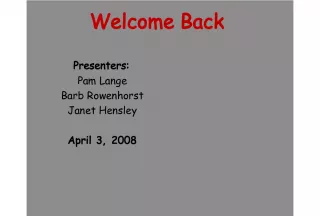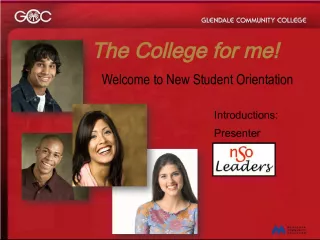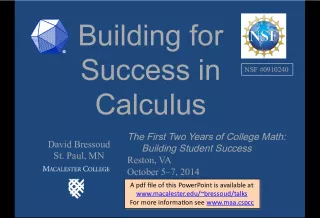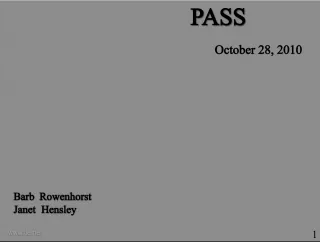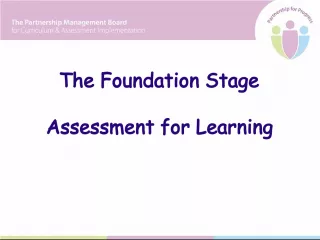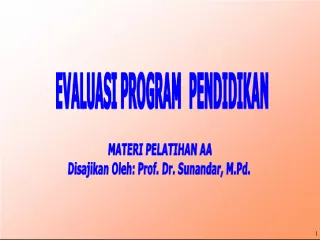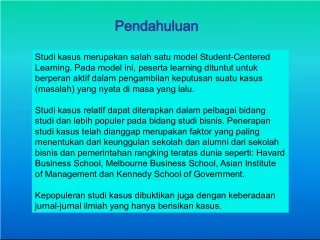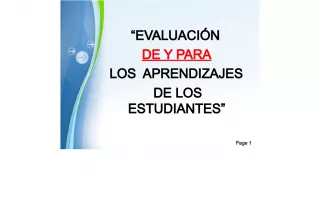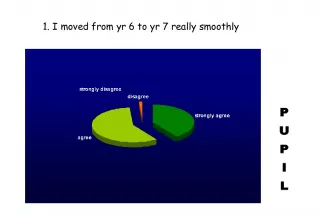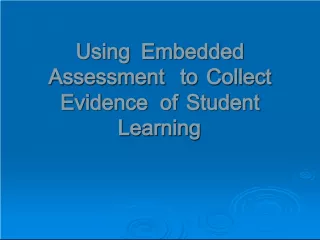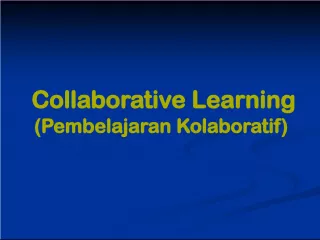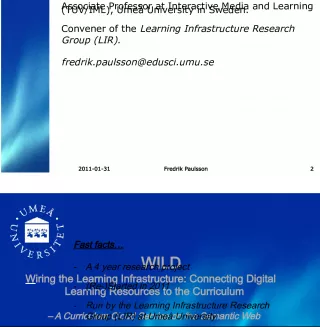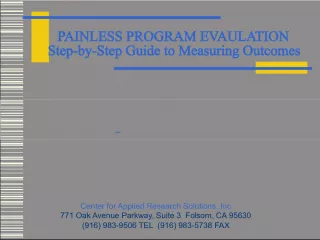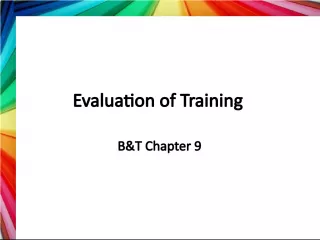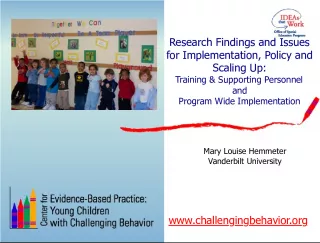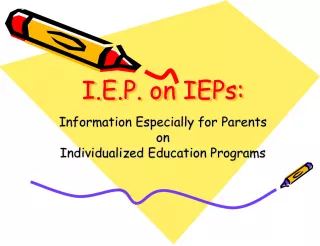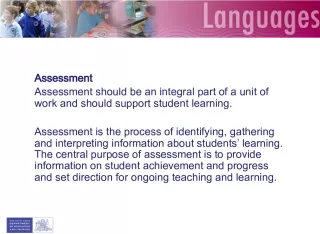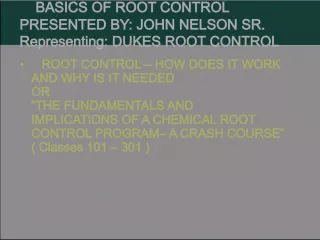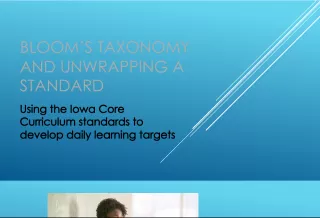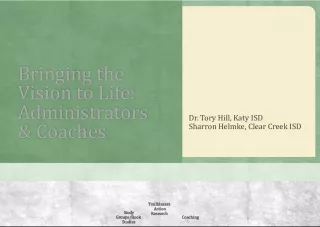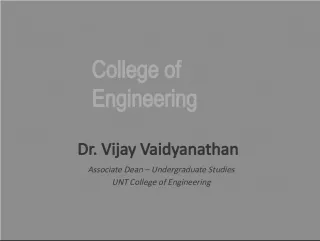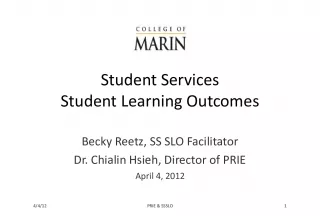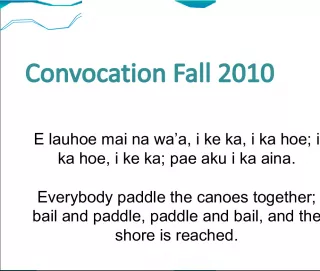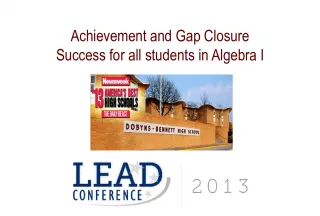Institute for Student Success - First Year Programs and Learning Communities Orientation
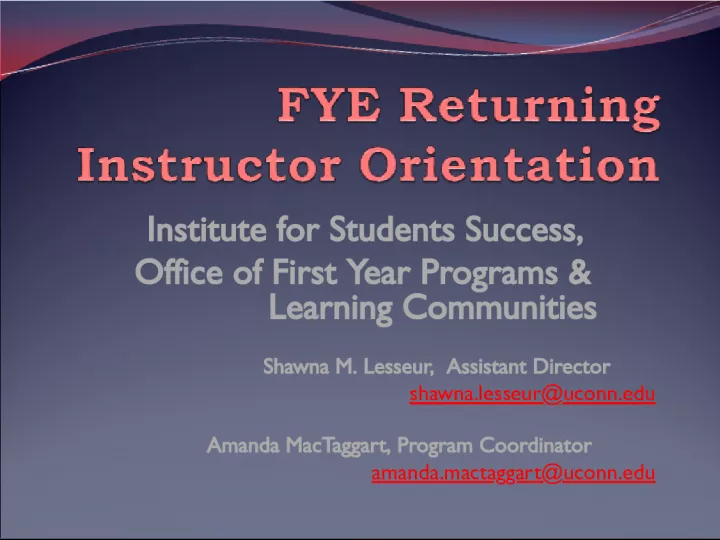

This orientation, led by Shawna M Lesseur, the Assistant Director, and Amanda MacTaggart, the Program Coordinator, aims to welcome and introduce participants to
- Uploaded on | 9 Views
-
 bertram1331
bertram1331
About Institute for Student Success - First Year Programs and Learning Communities Orientation
PowerPoint presentation about 'Institute for Student Success - First Year Programs and Learning Communities Orientation'. This presentation describes the topic on This orientation, led by Shawna M Lesseur, the Assistant Director, and Amanda MacTaggart, the Program Coordinator, aims to welcome and introduce participants to. The key topics included in this slideshow are . Download this presentation absolutely free.
Presentation Transcript
1. Institute for Students Success, Office of First Year Programs & Learning Communities Shawna M. Lesseur, Assistant Director shawna.lesseur@uconn.edu Amanda MacTaggart, Program Coordinator amanda.mactaggart@uconn.edu
2. Welcome and Introductions Name Department How long you’ve been teaching FYE Best FYE moment Common Element Innovative Addition One thing you are hoping to gain from this training
3. The Value of Icebreakers 1. Increase Energy 2. Build Relationships 3. Open Discussion For video examples of possible fun icebreakers visit http://www.supportrealteachers.o rg/ice-breaker-videos.html . (Tip: put the video in full screen to see it play out.) Visit here for more serious icebreakers for college students: http://adulted.about.com/od/icebr eakers/tp/toptenicebreakers.htm What’s you r favorite icebreaker or energizer to use in FYE?
4. Revisiting FYE Pedagogy 1. Orientation Agenda 2. Mission and Philosophy Revisited 3. Blackboard Learn: Your HuskyCT 4. Common Elements 5. You and Your Mentor
5. Orientation Agenda Section I: Revisiting Pedagogy Orientation Agenda Mission and Philosophy Revisited Blackboard Learn FYE Common Elements Syllabi Curriculum You and Your Mentor ~ 5 Minute Break ~ Section II: Collaborative Planning Teaching Common Elements Revising Your Syllabus Closing and "Homework" ~ To be continued on HuskyCT ~ Section III: HuskyCT Collaboration Continued https://learn.uconn.edu/
6. Learning Objectives LO1: Returning instructors will recognize the updates to the FYE mission, philosophy, resources, and common elements and begin to apply them to their courses. LO2: Returning instructors will reflect on how they have utilized the resources available to them through FYP in the past and how they can use them more effectively in 2013-2014. LO3: Returning instructors will participate in the FYE teaching community by collaboratively planning for their courses.
7. FYP & LCs Mission Our mission in the Office of First Year Programs and Learning Communities is to assist students with their transition from high school to college and to aid in the retention of students at the University of Connecticut. We provide holistic guidance, opportunities, and resources to enable students to actively engage and thrive at the University by becoming learners with a purpose . Through programs and courses like First Year Experience, Learning Communities, Academic Achievement Center, and UConn Connects, our office works with students to realize the value of the intellectual, social, and cultural dimensions of the University of Connecticut.
8. UNIV 1800 Learning Outcomes LO1: Students will recognize the principles of critical and creative thinking, and apply them to all three realms of their first-year experience: academic, personal, and global. LO2: Students will recognize their strengths and weaknesses and reflect on their personal growth as UConn students. LO3: Students will recognize and engage with social and academic support services and enrichment opportunities offered at UConn. LO4: Students will recognize and practice basic academic and professional skills necessary for undergraduate success at UConn. LO5: Students will recognize the diversity of our world and practice basic skills needed to actively and ethically contribute to a globalized society.
9. FYE Common Elements for HuskyCT Your UNIV1800 Site Instructor Resources Modules for all Common Assignments Common HuskyCT Pedagogy My Weekly 1800 Instructor and Mentor Sites Announcements Discussion Starting Posts Optional Additional Training
10. FYE Common Elements 1. Information Literacy 1. Critical Thinking 2. Plagiarism 2. Critical Reflection Writing Sample 1. Cultural Event 2. Paper Critique and Revision 3. First-Year Resume 1. Career Services Presentation 2. Resume Critique 3. Resume Revision
11. Information Literacy: 2 Parts Critical Thinking Plagiarism 1. What is “Information Literacy”? In-Class workshop. 2. Information Literacy Group Research and Scavenger Hunt 1. Pre-test for Benchmark 2. Individual Research 3. Cheat Paper Critique
12. Definitions Instructor Resources: American Library Association, Association of College and Research Libraries. “Information Literacy Competency Standards for Higher Education”: http://www.ala.org/acrl/standards/informationliteracycompetency Foundation for Critical Thinking, The Critical Thinking Community. “Defining Critical Thinking” http://www.criticalthinking.org/pages/defining-critical-thinking/766 What Critical Thinking IS What Critical Thinking IS NOT Illustrating command of information/sources Unsupported criticism Recognizing the biases, strengths, and weaknesses of sources Name dropping Focusing on YOUR take/contribution to a dialogue Empty citation stacking Anticipating the critiques against your own argument Simply summarizing another’s argument
13. Information Literacy Popular Culture Examples Critical Thinking In Action: Men In Black (1997) Critical Thinking Fail: “State of Disbelief” (2012) https://www.youtube.com/watch?v=rmx4t wCK3_I https://www.youtube.com/watch?v=h2P6M CosNv4
14. What do you get on Google? And what’s missing?
16. In-Class Google Activity FYE Information Literacy Introduction: Common Sources Academic Journals: Non- Peer Reviewed Dictionary Entries PDF from Ambiguous Source Academic Journals: Peer- Reviewed Essays for Hire (Cheat Sites) Possibly Legitimate Academic Site (unclear) Blogs Government Sites Primary Sources Books: Non-Scholarly Magazine Articles University Websites Books: Scholarly News Articles Wikkipedia Articles Book Reviews Other Informational Sites (About.com) Misc. Other ________________ Commercial Sites (such as Amazon) Organization Sites (political/for- profit/thematic) Misc. Other ________________
17. Group Scavenger Hunt Prompt: In groups of 3-4 explore the six research sites linked on HuskyCT, and create a list of one positive and one negative about each option. Then select a general topic for your group to research, using some of these tools and a general web search. Given this choice, your group must find reliable sources about this topic, explaining your reasoning behind trusting those sources. In addition, your group needs to find one pop culture example of critical thinking in action that you can connect to your research topic in some way. Have fun, and be creative.
18. Critical Reflection Paper 1. Cultural Event Attendance 1. Benton Exhibitions 2. Cultural Center Events 3. Films and Lectures 2. Drafting 3. Scheduling and Attending a Writing Center Critique and Peer Review Session 4. Academic Revision Process Note: ALL fall FYE group tutorials is October 15 th
19. Common Grading Rubric
20. Career Services FYE Résumé Assignment 1. Drafting Using Optimal Resume 2. Career Services In-Class Presentation 3. Individualized Research for Career Planning 4. Resume Critique 1. Career Services 1:1 2. FYP & CS Resume Workshops 5. Revision Grading: For this assignment it is possible to use contract grading. Students who fulfill all elements will receive an A. Students will be docked points for each element they fail to do. Note: Career Services will begin offering presentations Monday, September 30, 2013. The final day to request a presentation from Career Services will be Friday, November 18, 2013. Schedule here: http://www.career.uconn.edu/presentation_request_form.html
22. University Requirements All Syllabi should include: The course title, course number, section number, class location, meeting time, and semester Contact information for all instructors and mentors including: name, campus address (for instructors), e-mail address, and phone number Office hours reserved for student conferences on a regular basis (It is recommended that you be available on campus for students 2-3 hours per week.) Course description Enumeration of learning objectives / outcomes Required readings, including complete bibliographic citations Grading rubric (How many points can be earned and from which assignments) Grading scale (What point values or percentage counts for what which letter grades) Description of coursework (Including assignments, presentations, projects, etc.) Participation policy Late work policy Expectations for classroom behavior Academic integrity and responsibility statement: http://www.community.uconn.edu/student_code.html Students with disabilities disclaimer: http://www.csd.uconn.edu/fs_policy_statement.html , http://www.csd.uconn.edu/index.html Writing Center contact information: http://www.writingcenter.uconn.edu/ Career Services contact information: http://www.career.uconn.edu/ Course schedule including timeline of semester topics and due dates for assignments
23. Other Possibilities to Consider Incorporating: Self Academic Life Community/World Time Management Memory Strategies Getting Involved on Campus Stress Management Reading Techniques Multiculturalism & Diversity Personality Types Note-Taking The Arts (e.g. Benton, Puppetry Museum) Values/Self-knowledge Motivation Land Grant Institution: Dairy Bar Health Education (Nutrition, Fitness, Alcohol & Other Drugs, Sex) Using the Library Husky Traditions: Husky Heritage Sports Museum and Alumni Association Critical thinking Academic Advising Undergraduate Research Decision Making Career Planning Community Service Creating your Four-Year Plan Major /Career Decisions Police Station Passions/Goals Academic Achievement Center Study Abroad Internships
24. Expert Presentations Alcohol and Other Drug Services http://www.aod.uconn.edu/org_ca_team.html Study Abroad Student Ambassadors x5022 Police Services http://www.police.uconn.edu/programrequest.html The Dairy Bar: UConn History Walk http://fye.uconn.edu/12F_Wk_Digest/August/PDFs/Dairy_Bar_Procedures.pdf Benton Museum Field Trip Museum Staff x4520 Student Code of Conduct Community Standards x8402 Sex Jeopardy Joleen Nevers x0772 Violence Against Women Lauren Donais x1103, lauren.donais@uconn.edu ACES Ambassadors Harry Twyman x8961; harry.twyman.uconn.edu Career & Major Decisions Jim Hill x1788
25. Pre- and Post- Content Presentation Pedagogy Instructor HuskyCT Idea Share: Over the Summer All presentation need to have pre- and post- content. HuskyCT makes this easy and fun. See the HuskyCT section of the Instructor Manual Goals: 1. Practice using HuskyCT as your students will use it 2. Collaborate with other FYE instructors on lesson plan ideas 3. Foster an FYE instructor community Task: Consider how you would engage students before and after one of the expert presentations. Post your idea, and respond to at least two other instructor’s ideas.
26. Sample Course Calendar with All Common Elements UNIV 1800.XXX Course Calendar SAMPLE Semester Week Class Date Topic/Special Location Assignments Due 1 Sept. x First Class – Meet Instructor/Mentor, Class Expectations, and Overview of HuskyCT --- 2 Sept. x Time Management Bring all of your syllabi to class. 3 Sept. x Information Literacy I: Introduction and Group Work --- 4 Sept. x Information Literacy II: Critical Thinking Presentations and a Plagiarism Introduction 5-Minute Presentations of Critical Thinking HuskyCT Posts 5 Sept. x Strengths Quest Workshop 1) HuskyCT Plagiarism Module 2) Strengths Assessment 6 Oct. x Study Skills: Mid-Term Success (Mentor Presentation) Critical Reflection Writing Assignment First Draft Due 7 Oct. x UConn History / We will meet in class then walk to the Dairy Bar. --- 8 Oct. x Personal Values and Goal Setting --- 9 Oct. x Campus Involvement Critical Reflection Writing Assignment Final Draft Due 10 Nov. x Expert Presentation: Healthy Sexuality in College Pre-Presentation HuskyCT Post 11 Nov. x Identifying & Managing Stress 1) Post-Presentation HuskyCT Post 12 Nov. x Expert Presentation: Career Services Presentation Resume Rough Draft Due 13 Dec. x Expert Presentation: Power Foods Presentation 1) Pre-Presentation HuskyCT Post 14 Dec. x Class Wrap Up: Creating your Four-Year Plan 1) Post-Presentation HuskyCT Post 2) Critiqued Résumé Final Draft Due
27. Don’t’ Forget: Creating A Cohesive Course Remember Scaffolding Lesson Plan Elements Educational scaffolding is an “adult controlling those elements of the task that are essentially beyond the learner's capacity, thus permitting him to concentrate upon and complete only those elements that are within his range of competence” (Wood, Bruner, and Ross,1976). 1. Learning Outcomes 2. Necessary Prior Knowledge 3. Materials and/or Guests 4. 50 Minute Lesson Outline 5. Follow Up and/or Assessment
28. Grading Sample with All Common Elements
29. How is the relationship going?
30. How do you let your mentor practice their skills in 1800? Common Educational Psychology Class (EPSY 3020) focused on peer counseling Lesson Plan Development Classroom Management Strategies Facilitation Skills HuskyCT Mentors are expected to become proficient in HuskyCT Mentor Presentation Reminder Mentors will chose a topic and week in which they will fully facilitate one class period Mentors will be observed by an EPSY TA or Supervising TA for their facilitation skills and execution of their lesson
31. Mentor Meetings: How do you make these meaningful? Weekly Meetings Mentors and Instructors should set up a 1 hour weekly meeting time to discuss class structure, activities, co- instruction, facilitation, etc. One-On-One Meetings Mentors are required to meet with each of their students at least once during the semester. You can support this by making it a class requirement.
32. Mentor Expectations HuskyCT Mentors are expected to become proficient in HuskyCT. Mentor Presentation Mentors will chose a topic and week in which they will fully facilitate one class period . Mentors will be observed by an EPSY TA or Supervising TA for their facilitation skills and execution of their lesson.
33. Common Concerns we hear from Mentors “My Instructor…” won’t let me do anything during class, I just sit there” expects me to run the entire class and I don’t feel prepared” keeps changing our meeting time, or cancels it all together” Is forcing me to do my presentation about “_______”
34. Instructor Absence If you cannot make class you do not have to cancel. You have options: Work with your mentor to plan for them to lead the class session. Call FYP: Shawna, Dave, or Amanda may be able to lead your class session. Move the discussion or workshop online.
35. Questions? Feel free to contact FYP staff or the Supervising TA’s over the summer or during the semester: Doug Sekorski ( douglas.sekorski@uconn.edu ) Jen Artruc ( jennifer.artruc@uconn.edu )
36. Please take 5 minutes to get a drink, run to the restroom, socialize, etc.
37. Collaborative Planning 1. Teaching Common Elements 2. Revising Your Syllabus 3. Closing and "Homework"
38. Teaching Common Elements In groups discuss the following questions. Be prepared to share your thoughts. What has your approach to the common elements been in the past, and how is that working in the class? What is one thing FYE could do this year to make it easier for you to do a great job of teaching these common elements? How might you incorporate pre- and post-content for your favorite expert presentation? Choose one of the optional presentations and brainstorm possible strategies.
39. Revising Your Syllabus To Add To Delete or Revise Which elements will you be adding to your syllabus this semester? Do you have all of the university-required sections? Do you have all three of the FYE 1800 common elements? What do you want to try for the first time this semester? Which elements will you be removing from your syllabus or revising this semester? What didn’t work well last year? Does anything need to be revised or cut in order to fit in your additions?
40. Minute Write Please take a moment to let us know what you need to help you succeed and what you would like to see in the 2013-2014 academic year. (Tear off the last page of your orientation handout packet.) ~Thank you!
41. Preparing to Have a GREAT 1800
42. Your Homework Instructor To Do List Events and Communication Confirm class time/location on PeopleSoft (a.k.a Student Administration System) Sign up/attend HuskyCT training workshop with FYP staff Create a syllabus using the 1800 template provided Contact/schedule presentations for FYE Class Modify HuskyCT site for FYE class Read FYE Listserv emails and the FYP & LC Digest Contact your mentor over the summer Sign mentor/instructor agreement form Submit syllabus to FYP & LC office and by August 12th Email accepted syllabus to mentor by Tuesday, August 19th Attend mentor/instructor luncheon on Thursday, August 22nd Noon – 1:00pm Finalize date for mentor’s presentation Schedule weekly meeting time with mentor Plan lessons for weeks 1 and 2
43. HuskyCT 1. Instructor Collaboration Continued
44. Hour Three: HuskyCT Learning Outcomes: • LO1: Instructors will practice using the new HuskyCT discussion board as their students will use it in their FYE class. • LO2: Instructors will begin to develop an 2013- 2014 teaching community by participating in collaborative brainstorming. • LO3: Instructors will develop lessons, and HuskyCT content that they can use in their fall 2013 UNIV 1800.
45. Welcome back to the FYP family! If you have any curricular questions please contact Shawna Lesseur. If you have any technological questions please contact Amanda MacTaggart. http://web9.uits.uconn.edu/fye/instructors.htm
